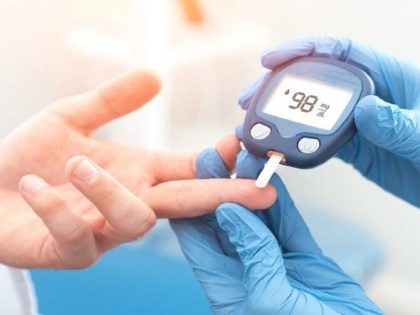146
MORE than 100 000 residents in UAE are set to be screened for diabetes after being referred to various clinics following a 100-day campaign titled “Show the Red Card to Diabetes”, by health officials. The referrals were aimed at encouraging lifestyle modifications to reverse pre-diabetes. This was announced as the Ministry of Health and Prevention (MoHAP) celebrated the achievement of the 100-day challenge as part of the Government Accelerators Programme initiative, which targeted 5,000 residents for the early detection of type 2 diabetes at the national level. The national campaign includes several primary health care clinics affiliated with the Department of Health – Abu Dhabi, Dubai Health, and the Emirates Health Services, as well as some workplaces in the government and private sectors. In October last year, the health authorities in the country joined hands with private entities for the one-year battle to prevent diabetes occurring in pre-diabetic individuals by conducting mass free screening programmes at workplaces, followed by intervention through lifestyle modification to reduce risk factors for diabetes. More than 12,000 residents were screened, achieving more than double the target of 5,000 tests, officials announced at a ceremony to celebrate the success of the campaign in front of Ain Dubai on Wednesday night. Dr. Salem Al Darmaki, Advisor to the Minister of Health and Prevention, said the success represented a quantum leap towards achieving the goals in reducing the prevalence of the disease. “It reflects the continuous efforts to enhance its prevention by providing early examinations to identify potential risks and take the necessary measures,” he said. Dr Buthaina Bin Belaila, head of Non-communicable Disease (NCD) and Mental Health Department at the ministry, revealed that a total of 12,877 residents were screened. “Of these, 8.9 per cent were found to be prediabetic while 1.7 per cent had already become diabetic,” she revealed. All the patients who have been diagnosed with pre-diabetes or diabetes have been referred for further follow up on the spot to make lifestyle changes, she said. “What is unique about this campaign is that it is the first such national campaign and we are closing the circle,” she added. Dr Buthaina said the campaign used digital questionnaires to assess the risks of the participants and based on that they underwent haemoglobin A1C (HbA1C) test for the first time, instead of the routine instant glucose test. “We are providing counseling [to those who were found to be diabetic and prediabetic] and also lifestyle modifications. We are offering them three-month and six-month follow ups at workplaces and in the community.” The HbA1C test measures your average blood sugar level over the past three months. An A1C below 5.7 per cent is normal, between 5.7 and 6.4 per cent indicates you have pre-diabetes, and 6.5 per cent or higher indicates you have diabetes, according to the CDC. How many patients manage to reverse their conditions would only be known after the sixth-month follow up, said Dr Buthaina. However, she said previous initiatives, though on a smaller scale, had shown great outcomes in reversing pre-diabetes among the participants who followed a healthy and active lifestyle. “We are hopeful that this will happen again. We will know the results when we complete six months.” Health authorities have recommended exercising, choosing healthy food, avoiding smoking, alcohol and stress as part of efforts to help residents reverse pre-diabetes and prevent diabetes among those referred for lifestyle modifications. Dr Buthaina said the year-long campaign will continue and target to screen 100,000 people for free. While those with insurance coverage would be tested under their respective insurance packages, those who are not covered would benefit from free testing services offered by private healthcare partners of the campaign. By Desmond Nleya, Daily Times


